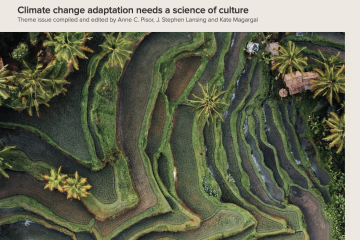Abstract
Contemporary inequality exists at an unprecedented scale. Social scientists have emphasized the role played by material wealth in driving its escalation. Evolutionary anthropologists understand the drive to accumulate material wealth as one that is coupled ultimately to increasing reproductive success. Owing to biological caps on reproduction for women, the efficiency of this conversion can differ by gender, with implications for understanding the evolution of gender disparities in resource accumulation. Efficiency also differs according to the type of resources used to support reproductive success. In this paper, we review evolutionary explanations of gender disparities in resources and investigate empirical evidence to support or refute those explanations among matrilineal and patrilineal subpopulations of ethnic Chinese Mosuo, who share an ethnolinguistic identity, but differ strikingly in terms of institutions and norms surrounding kinship and gender. We find that gender differentially predicts income and educational attainment. Men were more likely to report income than women; amounts earned were higher for men overall, but the difference between men and women was minimal under matriliny. Men reported higher levels of educational attainment than women, unexpectedly more so in matrilineal contexts. The results reveal nuances in how biology and cultural institutions affect gender disparities in wealth.
This article is part of the theme issue ‘Evolutionary ecology of inequality’.
First published: 26 June 2023 Ι SCI Author : Sarah Alami & Edmond Seabright



